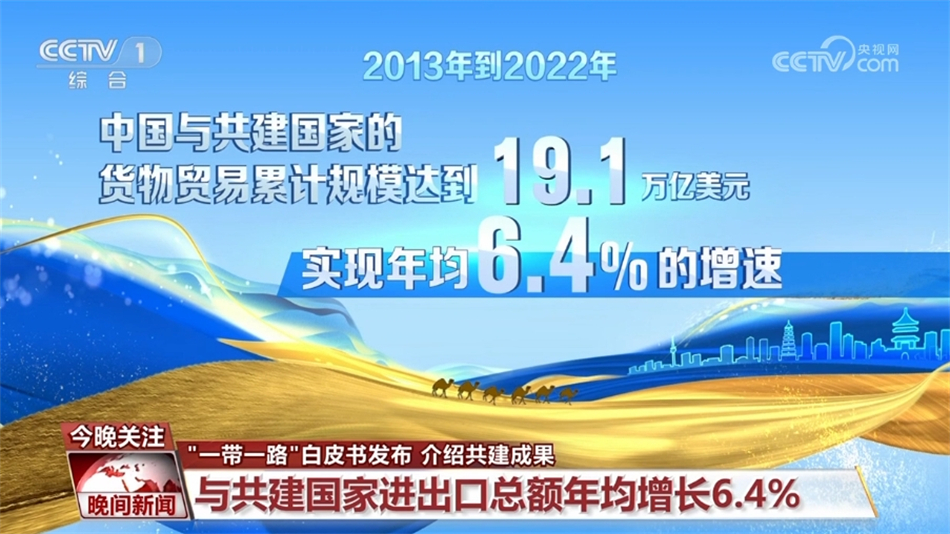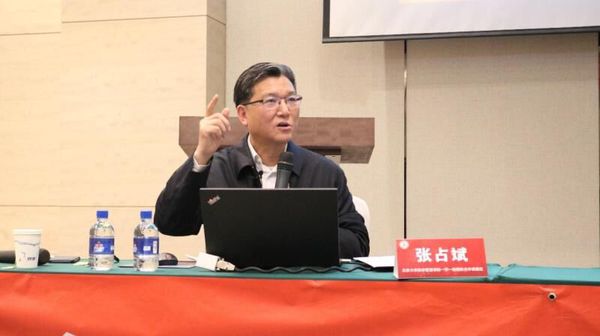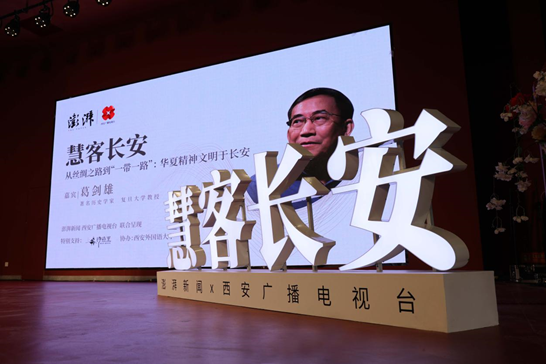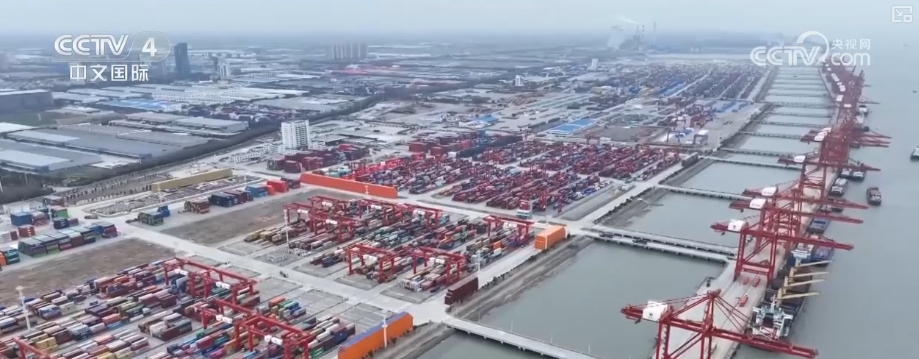"Mango Diplomacy" Upgrades China-Pakistan Economic Corridor And Opens A New Chapter In Agricultural Cooperation
"Mango Diplomacy" Upgrades China-Pakistan Economic Corridor And Opens A New Chapter In Agricultural Cooperation
Recently, Pakistani Ambassador to China Khalil Hashmi told 21st Century Business Herald reporters in Beijing that the construction of the China-Pakistan Economic Corridor has achieved fruitful results, with investments in the fields of transportation, infrastructure and energy exceeding US$25 billion.
Recently, Pakistani Ambassador to China Khalil Hashmi told 21st Century Business Herald reporters in Beijing that the construction of the China-Pakistan Economic Corridor has achieved fruitful results, with investment in the fields of transportation, infrastructure and energy exceeding US$25 billion, laying a solid foundation for Pakistan to consolidate its development foundation and accelerate economic growth.
Looking to the future, he expressed the hope that the two countries would work together to build an "upgraded version" of the corridor and expand business cooperation to agriculture, mining, information and communications technology (ICT) industries and other aspects. He said that there is huge potential for cooperation in these fields, and some Chinese companies with a keen sense of smell have already made early arrangements in Pakistan.
"Now, the construction of the China-Pakistan Economic Corridor has entered the second phase, focusing on industrialization, agriculture, ICT, mining and other technology-related fields. Our goal is to create more job opportunities, promote cooperation between enterprises, promote collaboration between industries, and encourage more scientific research and educational exchanges," Hashmi said.
Known as the "fulcrum of Asia", Pakistan is a hub connecting South Asia, Central Asia and the Middle East, and is an important fulcrum country in the joint construction of the "Belt and Road". In recent years, the two countries have built a "1 4" economic cooperation layout with the construction of the China-Pakistan Economic Corridor as the center, focusing on energy, transportation infrastructure, Gwadar Port, and industrial cooperation. China-Pakistan economic and trade cooperation has entered a stage of rapid development.
After more than 10 years of development, the construction of the China-Pakistan Economic Corridor has entered a new stage of high-quality development, and bilateral economic and trade cooperation has achieved fruitful results. China has been Pakistan's largest trading partner for ten consecutive years. It is Pakistan's largest import source and second largest export destination. It remains Pakistan's largest source of foreign direct investment. Pakistan is also one of China's important overseas project contracting markets.
Hashmi said that Pakistani Prime Minister Shahbaz will visit China soon and the two sides are expected to sign multiple memoranda of understanding and issue a joint statement. During Shahbaz’s visit to China, the Pakistani Embassy in China will host a high-profile business-to-business (B2B) meeting in Beijing on September 4, focusing on ten major fields such as agriculture, food processing, and textiles. It is expected that 500 Chinese and Pakistani companies will participate. Hashmi said, “We will organize more than a thousand B2B meetings in one day, setting a new record.”
“Mango Diplomacy” Witnesses China-Pakistan Friendship
Recently, the Pakistani Embassy in China held the first Pakistan Mango Festival at the Ministry of Agriculture and Rural Affairs of China. Hashmi said in his speech at the event that mangoes are not only the "national fruit" of Pakistan, but also an important part of culture. They also play a unique role on the diplomatic stage - as a national gift to international dignitaries.
Hashmi said that the quality of Pakistani mangoes is very unique and has two key characteristics: first, they grow at extremely high temperatures, with the average temperature being about 44 to 45 degrees Celsius. Second, they have been cultivated for centuries in the Indus Valley Civilization, using special growing techniques. These two characteristics give Pakistani mangoes an extremely unique taste and aroma.
"What we hold in our hands today is one of Pakistan's most precious gifts to the world - mango. It carries the warmth of the Indus River Basin, the whispers of ancient orchards, and the expectations of the people of China and Pakistan for a shared future." Hashmi said that on the 74th anniversary of the establishment of diplomatic relations between China and Pakistan, Pakistan once again launched "mango diplomacy" in Beijing, hoping to let everyone witness "the unbreakable bond between Islamabad and Beijing."
Pakistan's mango export to China is an important agricultural cooperation achievement under the framework of the China-Pakistan Economic Corridor. It is reported that through China-Pakistan cold chain logistics cooperation, the transportation time of Pakistani mangoes has been shortened by 50%, and the loss rate has dropped significantly. By providing fresh-keeping technology and deep processing equipment to Pakistan, China has contributed to the increase in the added value of Pakistani mangoes (dried fruit, juice production lines). In addition, platforms such as JD.com and Pinduoduo have opened "Pakistani Mango Zones", resulting in a single-day peak sales of more than 100,000 kilograms, and a favorable rating from Chinese consumers of 98%.
Salim Mandviwala, Chairman of the Finance and Budget Committee of the Senate of Pakistan, said at the event, "We hope to allow more Chinese consumers to taste high-quality Pakistani mangoes and promote bilateral agricultural cooperation. Using mangoes as a link, we will promote people-to-people bonds and cultural exchanges. At the same time, we welcome Chinese companies to invest in agricultural technology, cold chain logistics and deep processing and establish processing plants in Pakistan."
China-Pakistan agricultural cooperation is in the ascendant
Mango is known as the “King of Fruits” in Pakistan and is one of the country’s representative export categories for earning foreign exchange. Thanks to the advantages of climate and soil, its mango varieties include, etc., which are sweet, delicious and rich in flavor and are well-known in the international market. In recent years, with the development of international trade, Pakistani mangoes have gradually entered the Chinese market and have been welcomed by consumers.
Zhang Qingfeng, vice president of the China Fruit Circulation Association, said that in 2023, Pakistani mango exports to China exceeded 115,000 tons, with a trade volume of US$80 million. China has become one of the fastest-growing markets for Pakistani mango exports. Through mutual recognition of quarantine standards, industrial chain integration and brand collaboration, Pakistan’s exports to China are expected to double in the next three years.
Pakistan is the sixth largest mango producer in the world, with more than 200 mango varieties and an annual output of approximately 1.88 million tons, accounting for 3.5% of global supply, but it still has huge potential. Currently, due to logistics restrictions and other factors, only 6% to 7% of the country's output is exported (about 100,000 to 160,000 tons). Therefore, Hashmi expressed the hope that companies from both countries can expand cooperation in e-commerce, smart agriculture, cold chain logistics and other fields.
"When Pakistani mangoes meet Chinese e-commerce, we can write a new chapter of inclusive growth; when ancestral farming wisdom joins hands with artificial intelligence-driven agriculture, we can cultivate sustainable gold." Hashmi said, "Our goal is to double the export volume to China in five years to 230,000 tons, and at the same time double the export value to at least 160 million U.S. dollars, reaching a scale of over 100 million U.S. dollars."
Hashmi has high hopes for the agricultural technology cooperation between the two countries. "China has extensive expertise in agricultural technology, especially in seed development, pest and disease control, and mitigating the adverse effects of pesticides. Advanced fertilizer technology, efficient irrigation methods, and integrating artificial intelligence (AI) into planting and harvesting technology can improve mango production and preservation capabilities, ensuring that mangoes can stay fresh for longer. We hope to cooperate with Chinese companies in these areas."
In addition to mangoes, he revealed that recently, there have been frequent good news in agricultural cooperation between the two countries. Not only is the access agreement for Pakistan’s dried fruits exported to China about to be completed, but negotiations to promote Pakistan’s corn exports to China are also being accelerated. China is the world's second largest corn producer and consumer. In 2024, China's net corn imports will reach 13.3265 million tons, which is an extremely considerable market for Pakistani corn.
16 flights per week to and from China and Pakistan
On June 25, China Southern Airlines launched a new route from Guangzhou to Islamabad. This is China Southern Airlines’ fifth route in Pakistan and a new route after Urumqi-Islamabad, Urumqi-Lahore, Urumqi-Kashgar-Islamabad, and Guangzhou-Lahore. The newly opened Guangzhou-Islamabad route will operate three times a week, and the previously launched Guangzhou-Lahore route will operate four times a week.
Hashmi told a reporter from the 21st Century Business Herald that it was a very wise decision for China Southern Airlines to increase routes to Pakistan, because the passenger flow and cargo volume between the two countries are constantly increasing, which is enough to support the airline's operations. Now, under the operation of China Southern Airlines, there are about 16 flights between the two countries every week. This not only provides passengers with more convenient flight options, but also facilitates the rapid transportation of perishable products such as fruits and vegetables, creating conditions for the two countries to further strengthen exchanges and cooperation.
At the end of March this year, when Hashmi led a delegation to visit Guangzhou, he said that Guangzhou is a city with a long history and full of vitality, and its great achievements in economic and social development are admirable. We hope to work with Guangzhou to further promote trade and investment exchanges between the two places, deepen cooperation in agriculture, information technology, new energy, mining and textile industries, and inject new connotation into the development of Brazil-China relations.
He told reporters that he is very optimistic about the economic vitality of Guangdong Province and hopes to further promote business cooperation between major cities such as Guangzhou and Shenzhen and Pakistan. He said that the first China-Pakistan B2B Conference was held in Shenzhen in June last year. From June last year to August this year, the Pakistani Embassy in China also held a number of investment roadshows, two of which were held in Guangzhou and Shenzhen.





